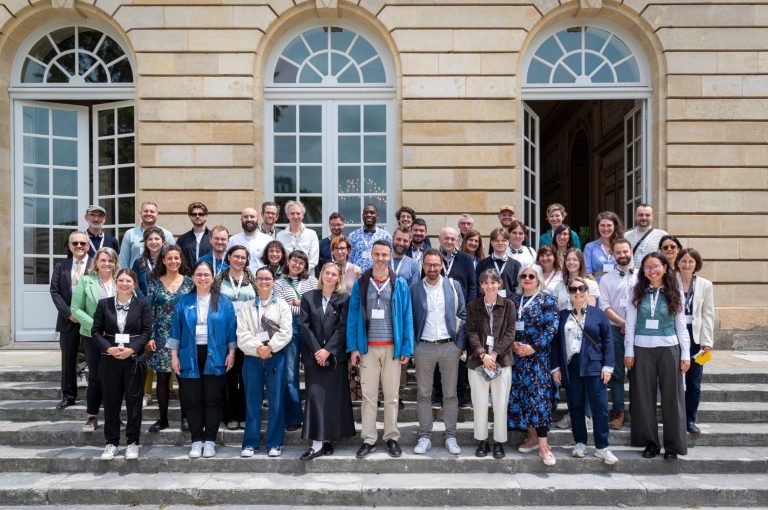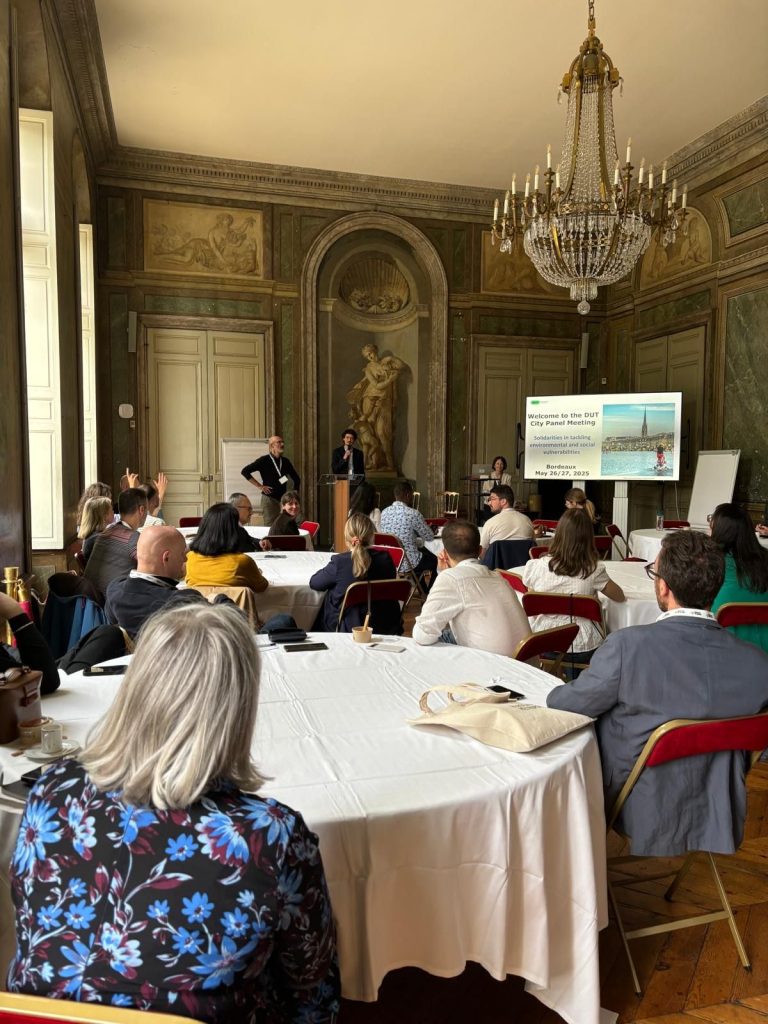Shared Visions for Positive Energy Districts: Reflections from the DUT City Panel

As part of the POSEIDON project, representatives from participating municipalities were invited by the DUT (Driving Urban Transitions) Partnership to take part in the DUT City Panel, held in Bordeaux on May 26–27, 2025. Axelle Renaud from the Municipality of Marseille and Neşe Ozcandir from the Municipality of Antalya attended the event. In this interview-style blogpost, Axelle reflects on her experience, the lessons learned, and how they relate to Marseille’s ambitions for developing Positive Energy Districts.
I was eager to join the DUT City Panel to connect with peers facing similar challenges across Europe. The theme, “Solidarities in tackling environmental and social vulnerabilities,” strongly resonated with our goal of building Positive Energy Districts (PEDs) that are not only carbon neutral but also inclusive and resilient. This was an opportunity to step back from our local work here in Marseille and gain perspective from other cities innovating on the ground.
What motivated you to attend the DUT City Panel in Bordeaux as part of the POSEIDON project?
What were the most interesting strategies or examples you discovered during the field visits or presentations in Bordeaux?
Bordeaux’s approach to urban transition is both tangible and community-focused. I was particularly inspired by the “Bordeaux Grandeur Nature” programme: greening schoolyards, pedestrianising streets for children, and depaving public space to tackle urban heat islands. These initiatives showed how nature-based solutions can become powerful levers for equity, well-being, and climate resilience.
The field visit to the Ginko eco-district also stood out. As a large-scale urban development integrating energy efficiency, social mix, and mobility, it offered a compelling example of how ambitious urban planning can align with sustainability goals. The long-term vision and the integration of public transport, green corridors, and mixed housing typologies illustrated what it means to make climate-aware districts liveable and inclusive.
In your view, how can the experiences shared at this meeting contribute to advancing Positive Energy Districts in your city?
The discussions confirmed that PEDs cannot succeed through technical innovation alone: social justice and citizen engagement must be at their core. Hearing from other cities helped reframe our challenges in Marseille and gave us new ideas on how to build trust with residents, ensure accessibility, and integrate the energy transition with broader policies on housing, mobility, and public space. The City Panel also reinforced the importance of storytelling and political leadership in driving change.

If you had to summarise your key takeaway from this event in one sentence, what would it be?
Building sustainable districts means aligning technical innovation with the everyday needs and aspirations of people… and that’s only possible through trust, dialogue, and shared vision.
